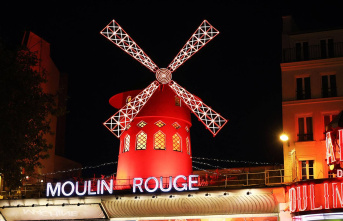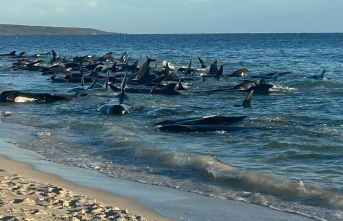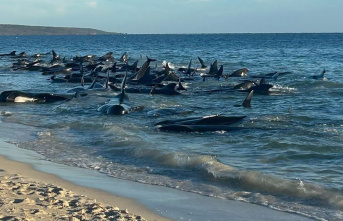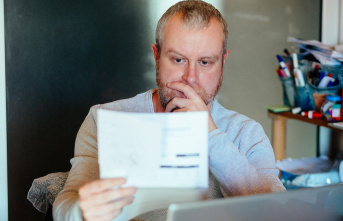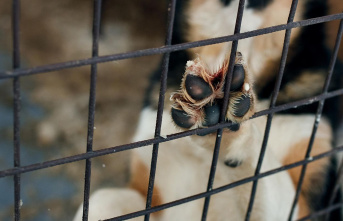"Humanity has a choice: cooperate or perish," Guterres warned in his speech. The world community must not lose sight of the fact that climate change is "the central challenge of our century". The world is "on the highway to climate hell" and has "your foot still on the accelerator," Guterres said.
Since Sunday, more than 190 countries have been negotiating in Sharm el-Sheikh for two weeks on the implementation of the Paris climate agreement. Numerous heads of state and government wanted to get involved in the negotiations personally on Monday and Tuesday, and more than a hundred of them arrived on Monday.
The conference is overshadowed, among other things, by the Russian war of aggression against Ukraine and the associated energy and food crises. Guterres emphasized that global warming has much larger dimensions and that many of today's conflicts are related to "the growing climate chaos". The war in Ukraine revealed "the far-reaching risks of our dependence on fossil fuels," said the UN Secretary-General.
At the same time, Guterres called for solidarity between the rich industrialized countries and poorer countries, which are already suffering massively from the consequences of global warming. "Damage and casualties can no longer be swept under the carpet," said the UN chief. The issue of financial aid for climate-related damage and losses, which has been controversial for years, was anchored as a separate item on the negotiation agenda on Sunday.
Guterres also called for a "historic" agreement between industrialized countries and poorer countries so that all countries would have access to affordable renewable energy. In particular, Guterres called on the two largest economies and greenhouse gas emitters - the USA and China - to facilitate such an agreement.
The Paris Agreement has set the goal of limiting global warming to 1.5 degrees if possible, but at least well below two degrees compared to the pre-industrial age. According to the current status, however, the earth is heading for a dangerous warming of 2.4 to 2.8 degrees by the year 2100. Climate-related extreme weather events such as floods and droughts are already increasing significantly.
Chancellor Scholz also wanted to get involved in the climate negotiations on Monday. He was recently criticized, for example because he wants to financially support new gas fields in Africa. Mohamed Adow, head of the energy transition organization Power Shift Africa, told Scholz in Sharm el-Sheikh that "the days of colonialism are over".
The head of Climate Alliance Germany, Christiane Averbeck, warned that the right "answer to Russia's war of aggression against Ukraine and the energy crisis" is to push ahead with the energy transition.
The head of the development aid alliance Venro, Mathias Mogge, explained that industrialized countries like Germany must "finally clear the way for a financing mechanism to pay for the climate-related damage and losses". The Parliamentary State Secretary in the Ministry of Economics and Climate, Franziska Brantner (Greens), emphasized in an interview with the Bayern media group (Monday edition) that Germany had already "raised its international climate financing to a maximum level".
French President Emmanuel Macron criticized on the sidelines of the COP27 that the European countries were "the only ones who pay". "Especially the USA and China" would have to move on climate finance and the reduction of greenhouse gas emissions.
Egypt's head of state, Abdel Fatah al-Sisi, said before the conference plenary session, with a view to the particularly high climate-related damage in the Global South, that the "priorities" of this continent must be taken into account at this Africa COP. "Isn't it high time to put an end to all this suffering?"


